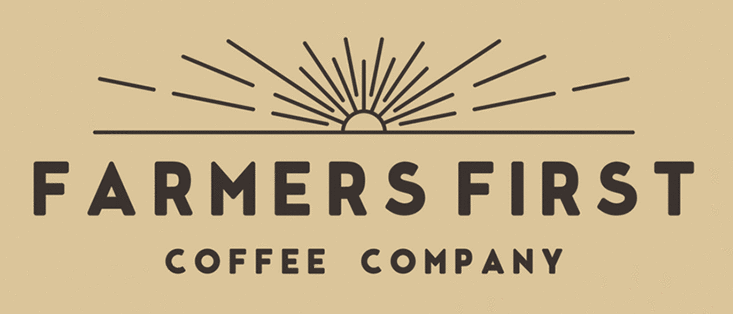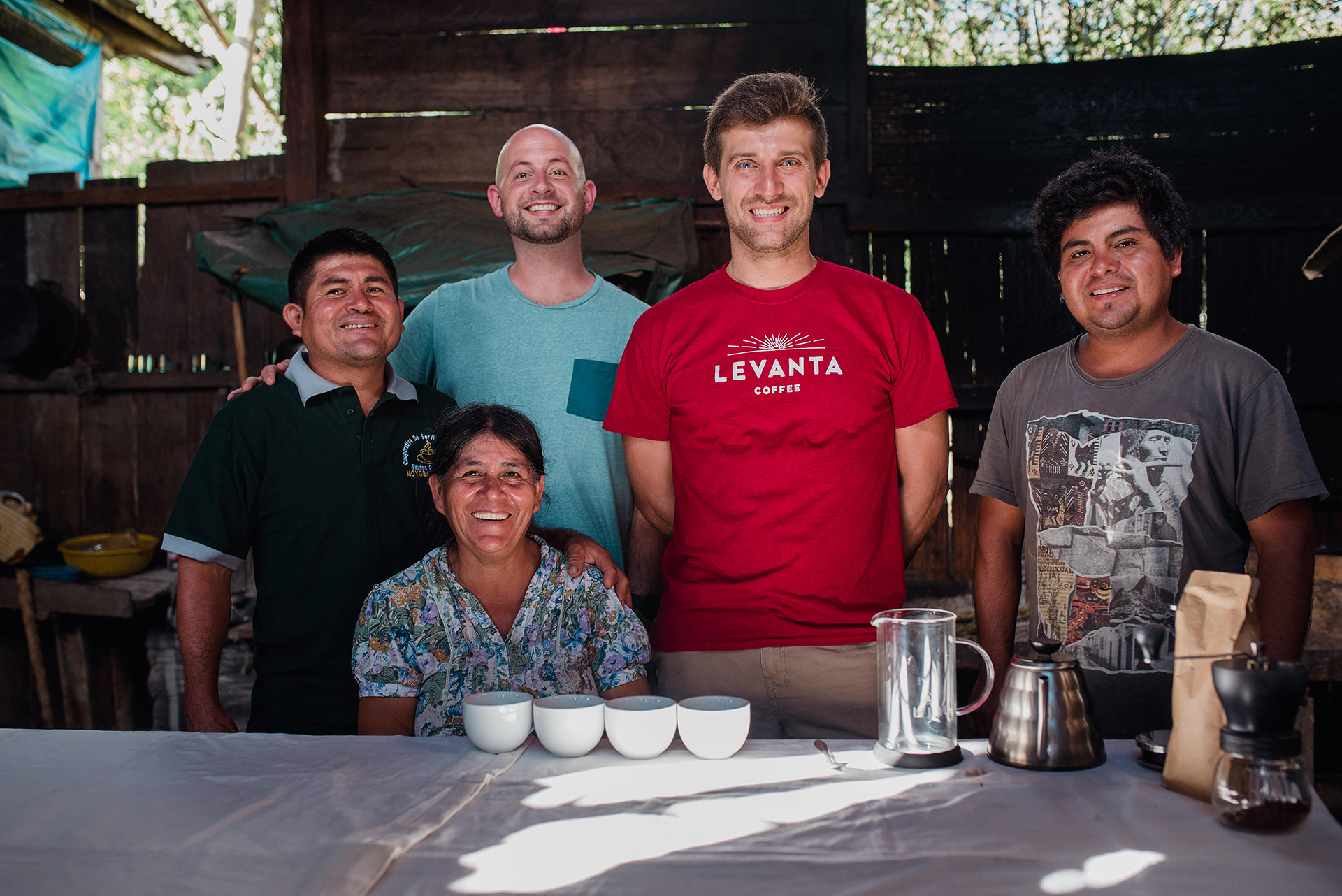

A taste for helping others
Matthew Hohler, in red shirt, earned a Master of Public Health a specialization in health promotion in 2016.
By Matt Markey ’76
Matthew Hohler never was much of a coffee drinker until a trip to Honduras changed his tastes. And then it changed his life.
The transformation started at a Catholic universities conference Hohler attended at the urging of his mother. There, he learned about some of life's bigger issues such as poverty in the Western hemisphere. After meeting someone there looking for educators, Hohler took a job teaching English at the Lake Yojoa Bilingual School in central Honduras.
He also volunteered with a nutrition program in Honduras and was troubled by the fact that many of the malnourished children in the area came from families that barely scratched out a living picking coffee beans.
"Teaching in Honduras, I saw real poverty for the first time," the Sandusky, Ohio, native said. "Here in the U.S., if we had to go without electricity for five days it would be like the end of the world, but in Honduras that's normal. I was in a foreign land where the people essentially had nothing, yet they were very giving of their time, and they always had a plate of food ready for you. It was an incredibly eye-opening experience."
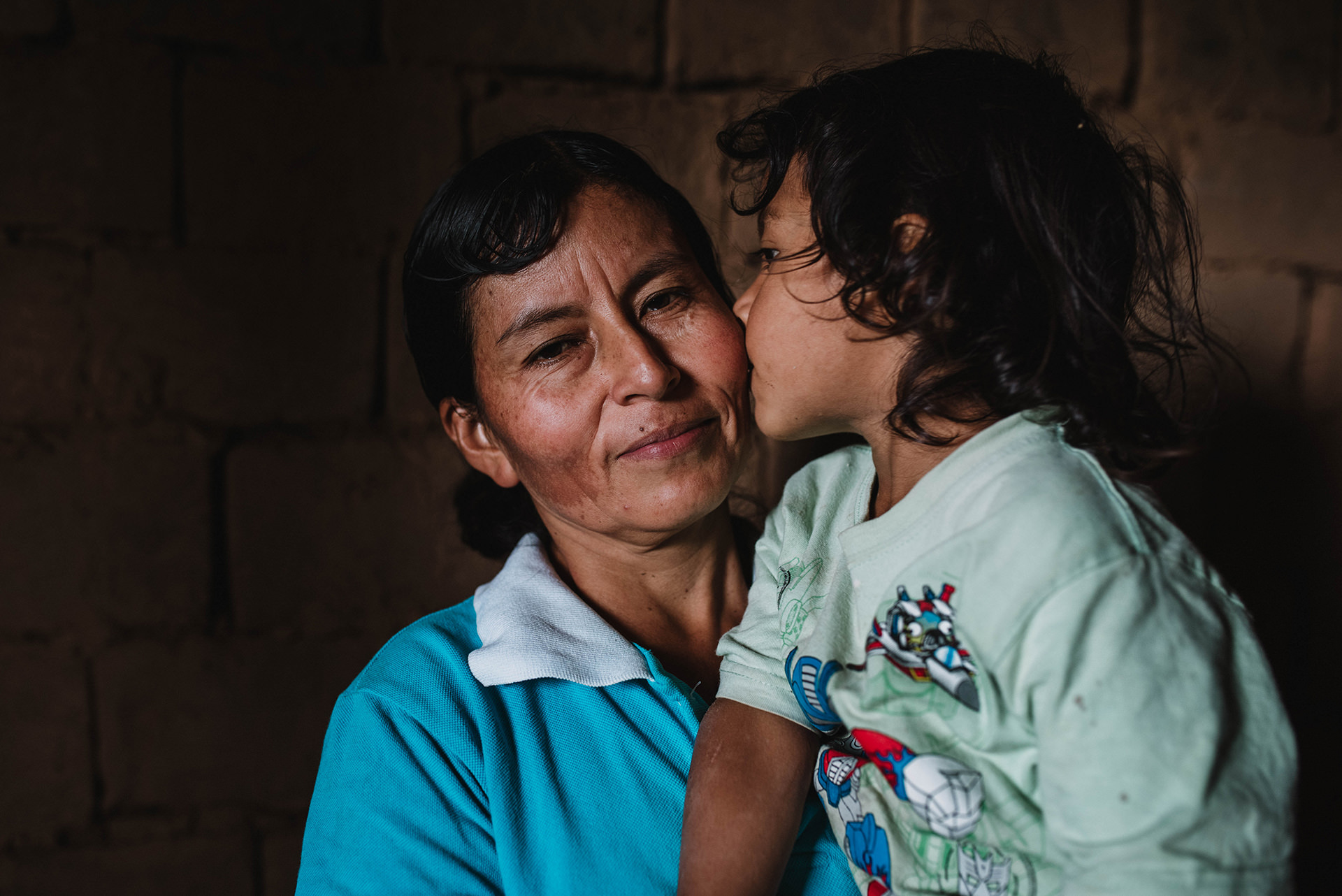

Hohler, who had earned a degree in exercise science with the intention of going into physical therapy, did short stints as a personal trainer and operating a health and fitness business, but his experience in Central America kept tugging him in another direction.
"I never drank coffee until I lived there, and I was very troubled by how coffee has this romanticized reputation in a lot of places, yet the people who spend their days picking coffee beans live in such poverty," he said. "I saw coffee as a way of connecting those two worlds."
So, Hohler sold his car, moved to Honduras, and with a business partner he had met there started to create a company that would change the world — one family at a time — and change it for the better for some of the 25 million people worldwide that spend their days picking coffee.
"My love of coffee continued to grow, but it was the people at the start of the coffee process that really captivated me," he said. "That's where this idea started to formulate."
Hohler was shocked to learn that the average coffee farmer profits less than 10 percent from bags of coffee sold at a grocery store, and only one percent from coffee sold by the cup at a neighborhood café.
By purchasing the beans from the farmers and finding his own roaster to process them, Hohler found he could bypass many of the middle steps in the process where much of the profits are taken, and then increase the income of the poverty-stricken coffee pickers by 50 percent.
He and his business partner, Robert Durrette of Virginia, made contacts with small, family-run growing operations in both Honduras and Peru, which have different harvest seasons, and started to line up an exporter to ship the beans to the United States.
Hohler returned to the United States in 2015 to attend graduate school at Bowling Green State University, earning a Master of Public Health a specialization in health promotion in 2016. That educational experience solidified his resolve to improve the lives of the families he met in Honduras and Peru.
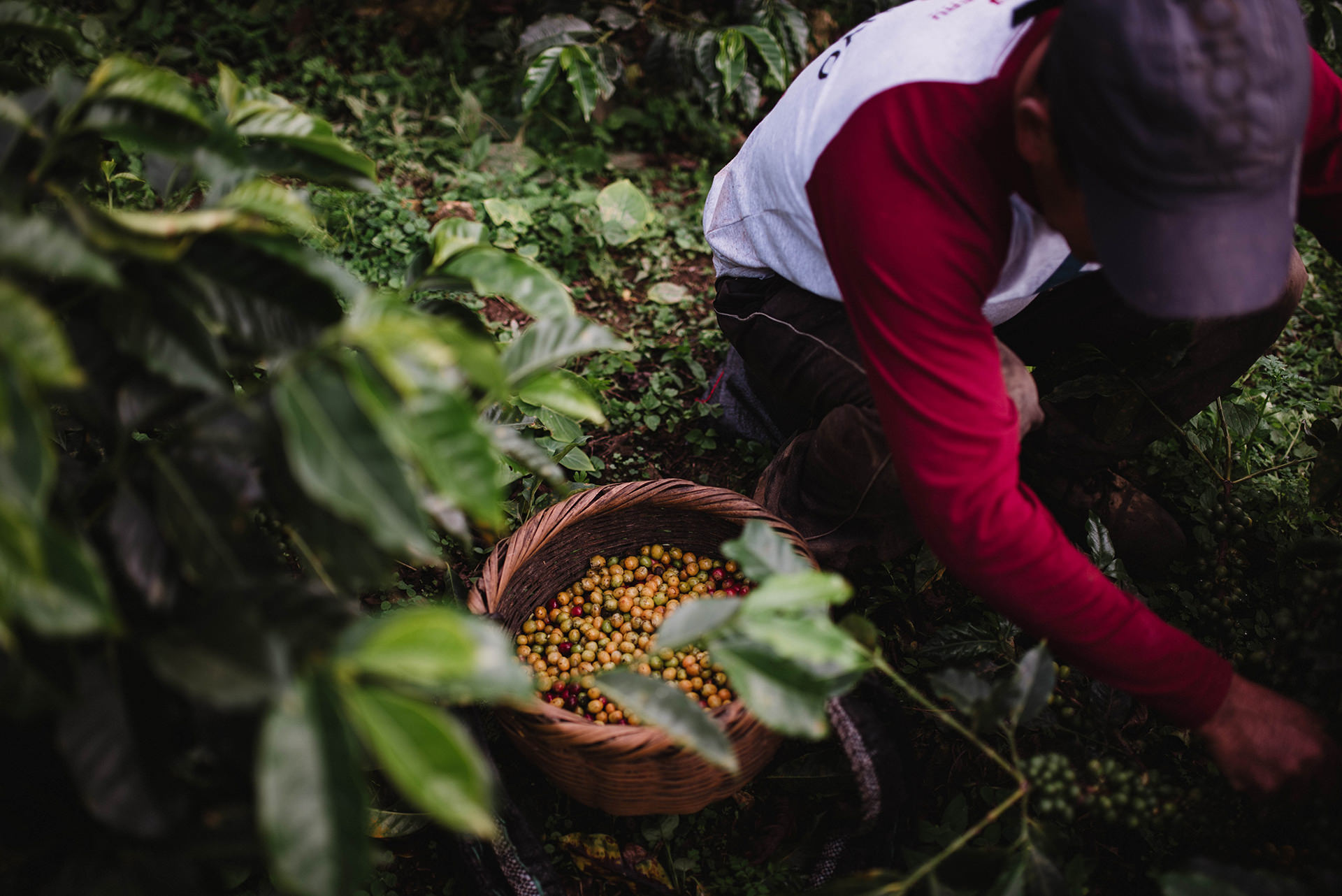

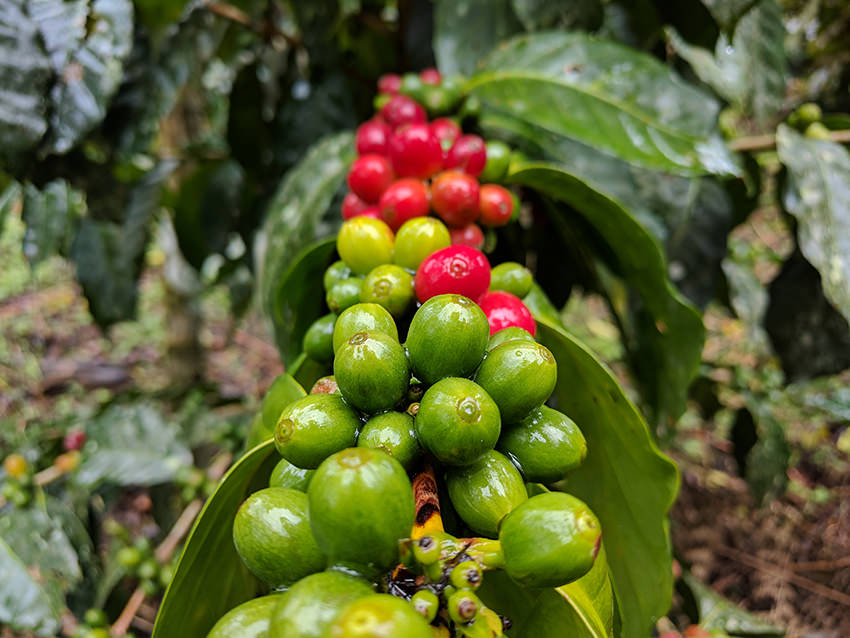

"My time at BGSU was very special and helped to shape the person I am today," Hohler said. "Without that foundation, this project would not exist."
He said he was significantly impacted by Rebecca Pobocik, the coordinator of the Food and Nutrition Program at the time, and changed his perspective on public health issues and creating long-term programs to deal with childhood malnutrition.
"I learned a lot and her teaching was fantastic, and I came away with a much better understanding of how to really help people," he said. "The biggest lesson was that we need to go in and ask people questions and listen to what the community has to say, rather than take some patriarchal approach and think we have all the answers."
Hohler and his business partner developed relationships with coffee farmers in both countries, and launched Levanta Coffee in March. The Spanish word "Levanta" means wake up, but also to rise up. Hohler said that by supporting the effort to help these coffee farmers and waking up each morning with a cup of Levanta Coffee, people will give these hard-working producers the chance to lift themselves up economically.
"Our model goes well beyond fair trade," Hohler said. "We've been very lucky and we've been able to meet the right people. And when you promise 50 percent more pay, people tend to listen."
The company, now known as Farmers First Coffee Co., is currently partnering with two families, and if a Kickstarter campaign continues to go well, Hohler said a third could soon be added. The company has connected with a coffee roaster in North Carolina to handle the raw product, and Hohler plans to work from that location much of the time, once orders start being shipped in the fall.
"We wanted to connect the coffee drinker with where this product comes from, and now there will be a face behind the cup," said Hohler, who is taking orders from individual customers now, but hopes to move into the wholesale market next year and sell to coffee shops and businesses.
"We realize we can't change the entire coffee world, but the long-term goal is to help 500 families," he said. "And if we can do that, then we've done something positive in the world, and each bag is getting us one step closer to that."
Updated: 07/30/2020 12:41PM

